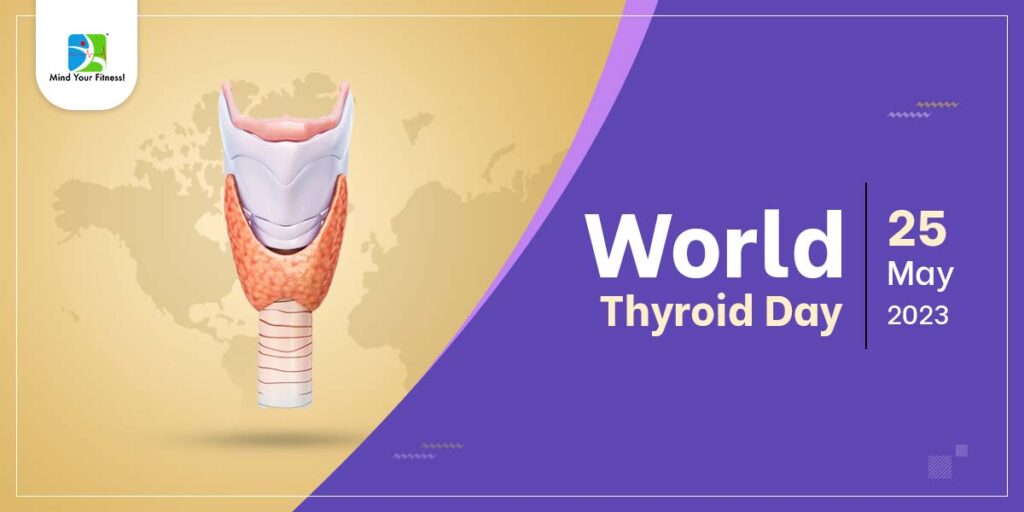
The ketogenic diet has been used popularly for weight loss. Although fat burning is the main effect, it also provides multiple health benefits like lowering inflammation, improving immunity, insulin resistance and energy levels to name a few.
That a ketogenic diet is bad for thyroid health is not supported by research. There is some evidence however that following a ketogenic diet may lower T3 levels which is the active form of the thyroid hormone.
The ketogenic diet mimics fasting so it makes sense that it could lower thyroid hormone levels which is the metabolic adaptation to energy restriction.
Is this a good thing? Are carbohydrates needed for maintaining thyroid function?
Ketogenic diets and thyroid status:
Considering 2 scenarios and the effects of the diet on each:
1. Euthyroid status:
Lowered T3 (usually the lower end of the normal range) is seen with calorie restriction and protein restriction as well. Evidence seems to point to lowered T3 as a physiological adaptation in the body that allows for a deeper state of ketosis and preserved muscle mass (this is a good thing). Low T3 levels are also associated with a longer lifespan in research.
This is given that TSH and T4 levels remain normal. This is where it is really important to monitor how you are feeling on a day-to-day basis and determine how you are responding to a ketogenic diet.
Studies done so far show that despite a drop in T3, the metabolic rate does not seem to drop. It might see that the ketogenic diet causes the tissues to be more sensitive to a smaller amount of T3.
Extreme caloric restriction can halt the fat burning state. It is associated with an increase in reverse/inactive T3 which opposes the active T3 effects.
Hunger tends to reduce on the diet and it is necessary to maintain a minimum amount of food intake specially when you hit a plateau. If you experience symptoms of hypothyroidism while on a ketogenic diet, you should get your diet reviewed under the guidance of a registered dietitian.
2. Hypothyroidism:
Hypothyroidism from a traditional medical standpoint is often referred to as the thyroid not producing enough hormones. This is a limited view however as thyroid hormones can be imbalanced due to a number of reasons that have little to do with the thyroid gland itself. Of the dietary causes iodine deficiency seems to be the commonest cause. Goitrogens are substances (soy, cruciferous vegetables) which inhibit iodine uptake by the thyroid gland. They are de-activated by heat. Selenium is a micronutrient crucial for thyroid function.
Hypothyroidism has a component of insulin resistance; it lowers the sensitivity of tissues to insulin.
Euthyroid patients on levothyroxine therapy and high levels of anti TPO antibodies show higher insulin resistance. In turn, optimal insulin function is required for the conversion of T4-T3.
T3 stimulates the GLUT-4 transporters on cell surface of the adipose tissue and muscle and enhances insulin mediated glucose uptake. Thyroid hormones are needed for glucose (carbohydrates) utilisation in the peripheral tissues. When carbohydrates are removed from the diet, less thyroid hormone will likely be needed.
Ketogenic diets are known to improve insulin resistance and make cells more sensitive to insulin and may be beneficial.
A pro-inflammatory state is seen with thyroid autoimmunity eg. Hashimoto’s. Ketogenic diets can help control inflammation. Lowering inflammation can improve the T4- active T3 conversion.
Personally in practice, I have seen great results with the diet in my hypothyroid clients including children. In some cases, the sensitivity to the hormone improves (typically in those who exercise) leading to a reduced medication dose.
The diet must however be adequate in nutrients which support thyroid function.
Takeaway:
Eating carbohydrates increases T3 levels because that extra T3 is required to dispose glucose produced from the carbohydrates. On a ketogenic diet, you don’t need as much T3 because you’re not spiking glucose levels from carbohydrates. They may reduce the body’s need for thyroid hormones. It’s simply a positive adaptation.
The diet is very unlikely to affect thyroid function negatively and cause hypothyroidism.
If a hypothyroid patient on medications is following the ketogenic diet, he/she should be monitored under the guidance of a qualified and experienced dietitian.
References
1. Study of Insulin Resistance in Subclinical Hypothyroidism
Sapna Vyakaranam, Swati Vanaparthy, Srinivas Nori, Satyanarayana Palarapu, Aparna Varma Bhongir
Int J Health Sci Res. 2014 Sep; 4(9): 147–153.
2. Could the ketogenic diet induce a shift in thyroid function and support a metabolic advantage in healthy participants? A pilot randomized-controlled-crossover trial.
PLoS One. 2022; 17(6): e0269440.
~Shwetha Bhatia, Registered Dietitian





